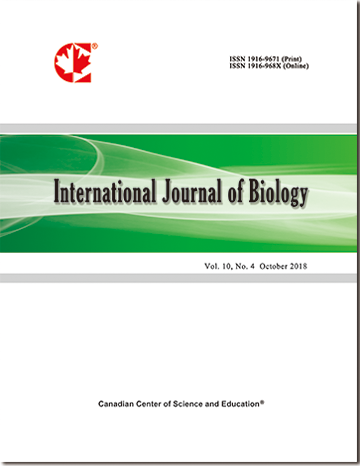Study of Bioassay the Allelopathical Effect of Neem (Azadirachta indica) n-hexane, Acetone and Water-soluble Extracts on Six Weeds
- Zoheir Ashrafi
- Sedigheh Sadeghi
- Hassan Alizade
- Hamid Mashhadi
- Ebrahim Mohamadi
Abstract
Azadirachta indica, or Neem Tree, is an evergreen tree native to Southeast Asia. All parts of the tree have been usedmedicinally for centuries. The allelopathic potential of extracts of Azadirachta indica L., which is one of the most
dominant weeds in tropical regions of South-west Asia, was investigated under laboratory conditions. The n-hexanesoluble,
acetone-soluble and water-soluble fractions obtained from the acetone extract of A. indica shoots inhibited the
germination and the growth of roots and shoots of six test plant species. The inhibitory activity of the water-soluble
fraction was greatest, followed by that of the n-hexane-soluble and acetone-soluble fractions in all bioassays.
Significant reductions in the germination and growth of the roots and hypocotyls were observed as the extract
concentration increased. The concentration-dependent responses of the test plants to the fractions suggested that all
three fractions might contain allelochemicals, but that the greatest potential was in the water-soluble fraction. These
results indicate that A. indica may produce potent allelochemicals, which should be investigated further in the
laboratory and the field.
- Full Text:
 PDF
PDF
- DOI:10.5539/ijb.v1n1p71
Index
- ACNP
- AGRICOLA
- BASE (Bielefeld Academic Search Engine)
- CAB Abstracts
- CiteFactor
- CNKI Scholar
- CrossRef
- DTU Library
- Elektronische Zeitschriftenbibliothek (EZB)
- Excellence in Research for Australia (ERA)
- Google Scholar
- Infotrieve
- LIVIVO (ZB MED)
- LOCKSS
- Max Planck Institutes
- MIAR
- PKP Open Archives Harvester
- Qualis/CAPES
- ResearchGate
- ROAD
- SafetyLit
- SHERPA/RoMEO
- Technische Informationsbibliothek (TIB)
- Universe Digital Library
- WorldCat
Contact
- Ryan JonesEditorial Assistant
- ijb@ccsenet.org
